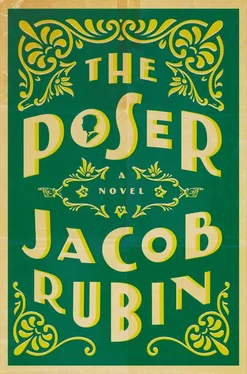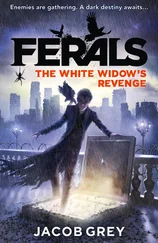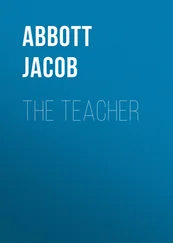The next morning, very early, I went downtown to Bernard’s tailor, from whom Max had first rented and later bought our tuxes. (Of course, I could have enlisted the concierge in accomplishing these various tasks, but the idea of explaining any of it to him, even in Max’s voice, brought back a terrible sense of panic.) Whenever on the walk my nerves crackled, I smoked a cig.
Marco, a perpetually drunk Greek in suspenders, kept repeating what I said to him. “Same as Mr. Apache?”
“Same, yes,” I said.
“Same exact as Apache?” he said.
“Yes, exactly the same.”
With a bewildered shake of the head, as if my request represented the latest instance of a larger, dispiriting trend, he reached wanly for his tape measure. “Next Friday,” he said after taking my measurements.
That was nearly two weeks.
“No,” I said. “I need sooner.”
“Next Friday.”
“Tomorrow,” I said.
“Tomorrow?!” He looked as if I had insulted God.
“I pay double. Double.”
“Fastest. Three days. Absolute fastest.”
The rest of the morning I looked for the starched white shirt, cowboy boots, and bolo tie. Shopping, what little I did of it, always caused me a certain dread, but this task was easier, for I knew exactly what I wanted, finding the first item easily enough and locating the latter two in the window of a western-themed boutique near the children’s park. I rang both the tie and boots up without trying them on.
• • •
The following days were spent in stunted and anxious reimagining of the scene as I waited for the suit. I kept sitting in the chair, trying it again, but it would not be right, would not work, until I got the suit. This slow assembling of my costume did seem, however, to favorably alter my dreams. As before, I dreamt that I wended my way through the backstage of the Communiqué to the greenroom, where I found Lucy with another man. This time, however, that man was me.
The morning I was to pick up the suit, the doorbell rang. I had been seated at the chair, trying a new variation, and leapt up at the sound. I tiptoed to the door and, heart loud in my ears, peered through: there appeared a dark convex shape I soon recognized as Max’s eye.
Quickly I surveyed the room. The chair, standing in its center, had exerted, it seemed, a magical pull on all nearby furnishings: the bedsheets groping at its legs, the nightstand drawn to its side. On that nightstand sat an ashtray piled high with cigarette stubs along with the silver-plated Zeno lighter, and four more unopened packs, the whole thing like a presentation on the life cycle of a cigarette.
The bell rang again. Hopping from one foot to the other, I yanked off the cowboy boots. I unnoosed the bolo tie and chucked it and the boots in the bathtub, like a drug dealer hiding his stash. Then I drew the shower curtain closed and, with one last organizing breath, swung open the door. “You found me!” I tried to make it sound happy.
Max smiled in a pained, knowing way. With a sigh, he brushed past me, entering the hotel room like a detective with a warrant. A moment later, he paused in front of the chair, taking it in, as he did all the room, with a slow-nod-deep-pout combination. His look seemed to indicate that this chair sculpture was just about exactly what he imagined he’d find here. Continuing past the chair, he walked to the curtains, parting them with a conductor’s grand, winging gesture. The midday light poured in. He pulled up the window, too. In came the whining of cars. I went for the cigarettes.
“Smoker now, huh?”
“Oh, not really,” I said. He looked at the nightstand with its four packs of cigarettes and burial mound of stubs.
I lit this new one, cupping my free hand around the lighter, a gratuitous gesture given the total lack of wind but helpful in that the act, as a part of the larger process of lighting the cigarette, furnished me with a way of speaking — urgent, no-nonsense — as if the cig itself were talking through me. “In all seriousness, I’m glad you found me.”
He sighed, looking around, and then raised his arm and slapped the side of his thigh. He seemed not yet ready to acknowledge me conversationally. “I checked the Communiqué, even Lucy’s. The Hotel San Pierre, just in case. I checked the Ambassador, the Belvedere, all the way down to Zephyr House, but then the old wheels started turning.” He tapped his temple. “And I thought, well, if the boy’s hiding, he certainly wouldn’t do it under his own name now, would he? Bernard maybe? Nope, no Apaches. Anthony Vandaline, perhaps? Came up empty. It took several hours, but I got it.” He eased into the chair and saluted gravely with his finger. “Mr. Jesse Unheim, I presume.”
I opened my arms, trying desperately to attain some levity. “In the flesh.”
“Were you planning to come to the Communiqué tonight?”
“What’s tonight?”
“I don’t know. Our show?”
“Ah.” I sat down on the corner of the bed, exaggerating a certain mope in my shoulders.
“Officially you have the flu.” He shook his head. “You know your mom’s worried out of her skull.”
“I appreciate you two exerting such parental concern, but, really, I’m doing okay.”
“You look it, this looks great.”
“Well, I’m upset, man, yeah. Is that a crime?”
“No, it isn’t.” He was lightly picking through the contents of the nightstand. Then, as if he’d given me enough of a hard time, added, “I heard what happened.”
I continued to play it somber. “You did, huh?”
“Bernard’s a bastard.” Looking not at him but at the cherrywood dresser in front of me, I nodded in the jaunty, unserious way of a drug person, that is to say, as if some jazz, audible only to me, were playing in a nearby room. I held the cigarette in a slightly scissoring grip between my index and middle fingers, raising it up to my head. Who was this? Where did these gestures come from? “Your mom thinks you should take a break, go back home for a bit.”
Sea View. The words alone turned my gut to fricassee. I pictured a sort of antiparade, pictured myself being dragged through the street before a panorama of inbred scowls; Mama bringing her pointed finger up and down, like a judge’s gavel; and only as I began to shake my head saying, “No way, man. Can’t do it,” did I realize that I had been doing Jesse Unheim, the name on my reservation, ever since Max arrived.
I remembered Jesse’s cadence well enough (rushed, muttering) and his voice, too, flinty even by the eighth grade. In what gaps there were I injected the standard hustler’s body language, gestures I knew from cinematic visions of light degradation, the kind set in roadside motels and two-bit horse tracks. An alloy like this one (taking parts from one and adding to another) often stirred in me a clenched, wired feeling, like an upper at the tail end of its effect, and I was about ready to jump out of my skin. I was standing up again, pacing. I needed to get Max out of there. Needed to get the suit.
“No, no. I want to work. I’ve got an idea for a new set.”
“Slow down, boy. You seem quite—”
“Excited? Well, I am. Look, Max. I holed up here because I’m working on something, okay? Yes, I’m down. Yes, I’m heartbroken, and I should’ve told you, but I’m channeling it, or whatever you want to call it. I’m pouring it into this thing. I can’t talk about it now, but this is going to be big, Max. Huge .”
I saw his skepticism, like some boxing challenger, putting up a fight and being slowly pummeled by his natural enthusiasm. He extended both arms, ostensibly to calm me.
“That sounds potentially exciting.”
“It is, I’m telling you. Hell, you’re the one who’s always saying to catch inspiration while it’s in the room. Well, it’s in the room, and I’m just trying to catch it!”
Читать дальше












